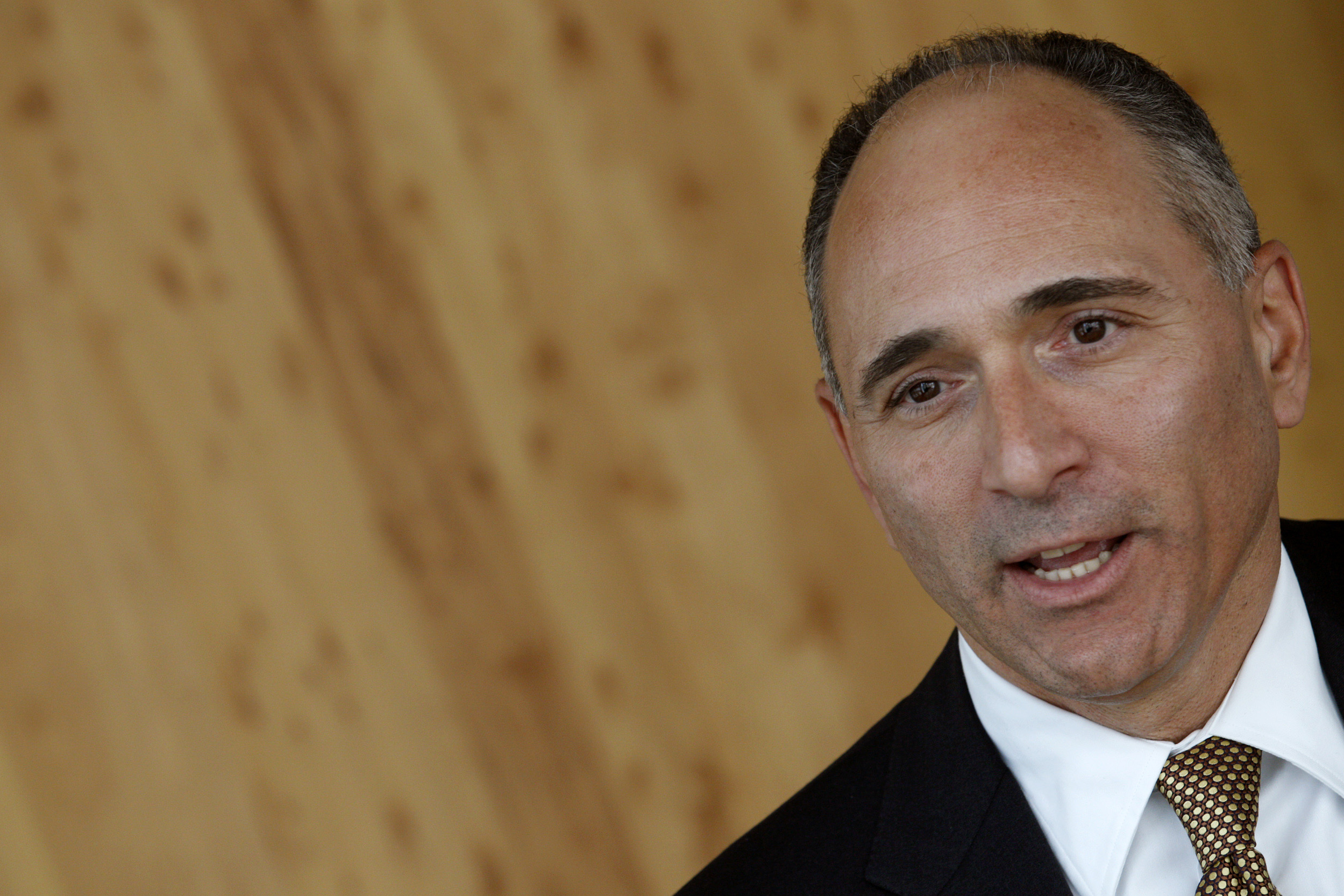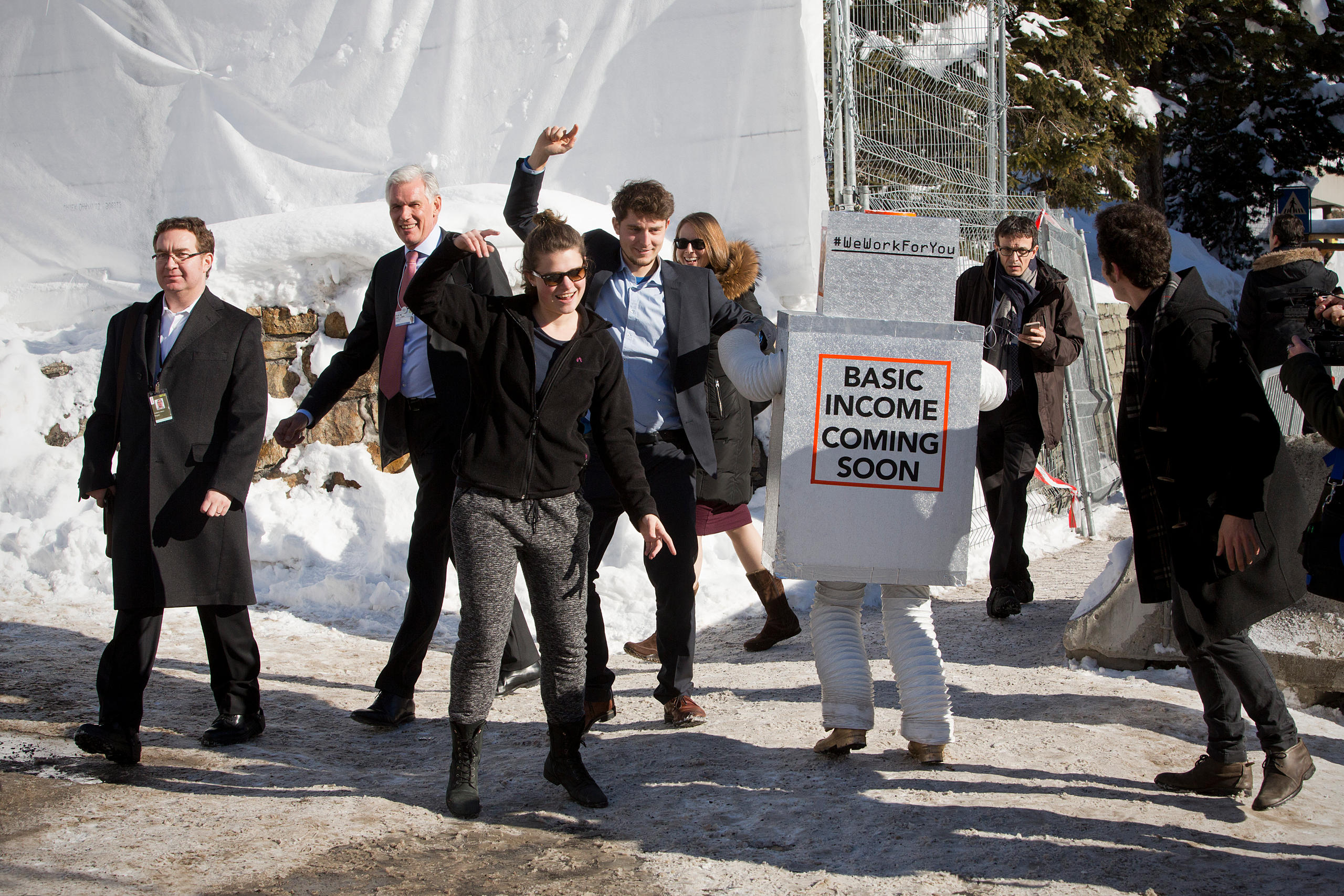Seeking to reconcile democracy and economics

Moving beyond capitalism. The founding idea of the left, which the Social Democratic Party of Switzerland wishes to rejuvenate by promoting an economic order based on social responsibility, solidarity and participation. For economist Reiner Eichenberger, this stance simply reflects a party that has run out of ideas.
The recent no from the Swiss voters to a corporate tax reform, seen as much too favourable to the largest enterprises, has given a boost to the Social Democrats, whose call for a referendum was an attack on the proposed reform.
A result that gave fresh impetus to its critique of capitalism.
A few weeks before, Oxfam had waited for the opening of the annual meeting in Davos of the World Economic Forum to publish its report on world poverty.
What emerged (even if the interpretation of the figures is disputed) was that in Switzerland, too, there is extreme inequality: 2% of the population owns more than half of the nation’s wealth.
A few days later, the church charity, Caritas, issued a figure of 530,000 people living below the poverty line in Switzerland, with a similar number in precarious circumstances (“just about managing”), in most cases despite the fact that they were in work.
Party manifesto
Without waiting for this data, which in any case is fairly constant from one year to the next, at its December congress in Thun the Social Democratic Party had adopted a position paper, with the manifesto-like title: “A future for all, without privilege – preparing for a democratic economy that respects the environment and embraces solidarity.”
Intended to set a course for the party in the years ahead, the document gave rise to vigorous debate between reforming Social Democrats and more radical comrades, within a party which the smartvote.ch website qualifies as one of the most left-leaning in EuropeExternal link.
In this document, the party reaffirms its determination to “move beyond capitalism”, a notion introduced into its 2010 programme under pressure from its left wing and youth movement.
“Class struggle lite”
A call for a proletarian revolution? Come off it! The concept is somewhat outdated.
This text is part of #DearDemocracy, a platform on direct democracy issues, by swissinfo.ch.
The idea is rather to try to democratise enterprises, to share the cake more fairly and seek to promote good working conditions and greater respect for the environment. A sort of “class struggle lite”, as it was described by the NZZ am Sonntag newspaper.
“There’s nothing new in the idea of moving beyond capitalism. The Social Democratic Party is just emphasizing it more strongly at the present time.
It shows that the Social Democrats have run out of constructive ideas,” is the trenchant comment of Reiner Eichenberger, professor of economics at the University of Fribourg, known for his strongly free-market stance.
Worker participation
A parliamentarian and leading member of the Social Democratic Party, Barbara Gysi, freely admits that moving beyond capitalism is not a new idea.
“But that doesn’t mean it’s a bad idea. We’ve tried to work within the system for the last 30 years, but it’s not producing the goods. The economy and society generally are increasingly taking different directions. What we want is to humanise the economy once again and, to achieve this, we are convinced that wider worker participation in business is essential.”

More
The Italian seasonal workers in Switzerland
To support this conviction, the Social Democratic Party points out that the kind of businesses it advocates already exist, in GermanyExternal link for example, or in FranceExternal link, which has a law favouring the social and solidarity economy (SSE).
As a result, SSE enterprises “account for 10% of GDP, employ one wage-earner in ten and create many jobs. Since 2000, while private employment in conventional enterprises has grown by only 4.5%, SSE enterprises have created 24% of new employment,” writes the French Minister for the Economy.
Alternative economy
In Switzerland, too, “there is an alternative economy,” as the Geneva Chamber of the Social and Solidarity EconomyExternal link proclaims on its website.
But worker participation in businesses is struggling to get off the ground. A curious paradox, in the country of direct democracy, which has made participation in politics an almost sacred principle.
“It must have something to do with the fact that we have many SMEs, with rather old-style bosses,” suggests Gysi. “When I speak with people, I see many feel that, within your company, you can always discuss things, but you cannot take part in decision-making.”
“And maybe it is precisely because we have such well-developed mechanisms for participation in politics that we are rather behind in the economic sphere,” Gysi continues.“
Nor should we forget that the business sector wields a great deal of power, both politically and socially,” she says.
Free market vs state intervention
Economic expert Eichenberger has nothing against worker participation, in principle. But he believes it should be developed “where it brings real advantages”.
And that is already happening: “Think of legal practices, or consultancy firms, where partners of equal standing manage the business, and young people eventually become associates. In a free market, participatory management and cooperation develop where it makes good sense, not where it is pointless. But this cannot be imposed from the top down, as the Socialists are demanding.”
“Especially since,” Eichenberger adds, “as they see it, the aim is not just to give employees the right to participate, but the trade unions too. Or rather, representatives of the Social Democratic Party.”
A point which does not seem to disconcert Gysi, though her party is sufficiently realistic to realise that participation cannot be introduced by decree, and that any move to do so in a parliament dominated by the political right is unlikely to gain majority support.
What the Social Democrats are aiming for are “bottom-up” initiatives: strengthening participation where it already exists, in cooperation with partner organisations, such as the trade unions.
Politically, any initiative with a chance of being successful, or simply stimulating debate, is to be envisaged. And this is true not only in parliament but a the level of direct democracy, where the tools are available at all three levels: the federal level, the cantons and the municipalities.
The working group which drafted this position paper will be meeting regularly to keep abreast of developments, and Gysi repeats the promise made by her party: “The democratisation of the economy will be a matter of priority for us in the years ahead.”
Translated from French

In compliance with the JTI standards
More: SWI swissinfo.ch certified by the Journalism Trust Initiative













You can find an overview of ongoing debates with our journalists here . Please join us!
If you want to start a conversation about a topic raised in this article or want to report factual errors, email us at english@swissinfo.ch.